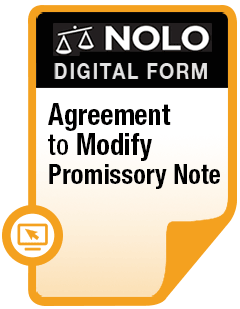Get answers to frequently asked questions about Obamacare and the Health Insurance Marketplace.
Get answers to frequently asked questions about Obamacare and the Health Insurance Marketplace.
What Is the Health Insurance Marketplace?
The federal Health Insurance Marketplace, which is also called the "Marketplace" or "Exchange," is the website where individuals can browse various health care plans available under the Affordable Care Act, commonly known as "Obamacare," as well as compare them, and purchase health insurance. Some states, like California, offer their own Marketplace. If your state isn't offering its own Marketplace, you can use the federal Marketplace.
The health insurance plans are offered by private companies but are all required to offer all essential health benefits, such as hospital care, outpatient services, emergency services, maternity care, mental health and substance abuse treatment, prescription drug coverage, lab services, and rehabilitative services.
How Can I Enroll in a Health Care Plan?
Generally, you have to enroll during the Open Enrollment Period. Though, you might qualify for a Special Enrollment Period if you've gone through a major life event like losing other coverage, getting married, or having a baby.
What Is a Premium Tax Credit?
A "premium tax credit" is a credit you can use to lower your monthly insurance payment when you enroll in a plan through the Marketplace. As originally designed, the premium tax credit was only for low- and moderate-income people whose household income was between 100% and 400% of the federal poverty level (FPL). However, Congress removed the 400% of FPL limit for limit for 2021 through 2025.
From 2021 through 2025, Americans who earn over 400% of the federal poverty level don't have to pay more th
If you are offered health coverage through your employer, you can purchase a policy through the Health Care Marketplace, but you are eligible for subsidies only if your employer-provided insurance isn't affordable based on certain criteria. If you don't qualify for your employer's insurance because you work part-time, you can get health coverage through the Marketplace.
Are There Different Plans Available Through the Health Insurance Marketplace?
The four different categories of insurance plans available through the Marketplace are Platinum, Gold, Silver, and Bronze. All of the categories' plans provide the same essential health benefits. The quality of care provided, or the access to doctors, doesn't vary between plan types. The various categories differ by the types and amount of costs you'll pay.
A Platinum plan's premium is the highest, but you'll have lower out-of-pocket costs, like copays for visiting the doctor and for prescription drugs. A Bronze plan's premiums are the lowest, but you'll have higher out-of-pocket costs. The Gold and Silver plans are in between.
What if I Have a Preexisting Condition?
A preexisting condition won't keep you from getting health coverage. As of January 1, 2014, no insurance company can exclude you from coverage because you have a chronic or disabling illness or injury because you've received recent treatment for a medical condition. An insurance company also can't charge you more if you have a preexisting condition.
That said, if you currently have an individual plan that excludes preexisting conditions, that plan doesn't have to change its rules. (This kind of individual health insurance policy is a policy that you purchased for yourself, or your family, on or before March 23, 2010, that hasn't been changed in certain specific ways that reduce benefits or increase costs to consumers.)
Do I Have to Pay a Penalty If I'm Uninsured?
The individual mandate was still in effect for 2018 but was reduced to $0 after the end of 2018.
What if I'm Pregnant and Want to Buy a Marketplace Plan?
Under Obamacare, preexisting conditions are covered, including pregnancy. Maternity care and childbirth are considered essential health benefits, which means all Marketplace health plans must cover them—even if you were pregnant before your coverage begins.
Some older individual health plans, though, don't have to cover pregnancy and childbirth. (An individual health plan is a plan you buy yourself, not the kind you get through your job.)
What if I Work Part-Time and Want to Buy a Marketplace Plan?
If you work part-time and can't get coverage from your employer, you can purchase a plan through the Marketplace. Depending on your income level, you might be eligible for a lower policy premium.
However, if you can get health coverage from your employer, you can still buy insurance through the Marketplace. But you might not qualify for a premium tax credit and other savings based on your income.
What if I Lose My Group Insurance Through My Job?
If you lose your job-based coverage, you have the option of continuing your plan through COBRA for 18 months or of purchasing an individual plan through the Marketplace. You don't need to wait until an open enrollment period to sign up for a Marketplace plan if you lost your group insurance.
What If I'm Self-Employed? Can I Get an Individual Marketplace Plan?
If you're self-employed, meaning you run your own business or do freelance or contract work, and you don't have employees, you can purchase an individual Marketplace plan.
If you have employees (not independent contractors), you're considered an employer and a small business. You might be able to use the SHOP Marketplace for small businesses to offer coverage to yourself and your employees.
How Can I Find Out More?
To get more information about Obamacare, learn about available plans, and get information about how to enroll, go to www.Healthcare.gov.
Ready to create your will?



